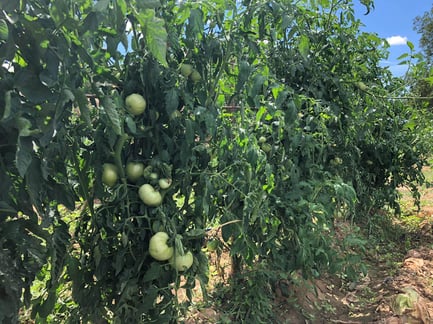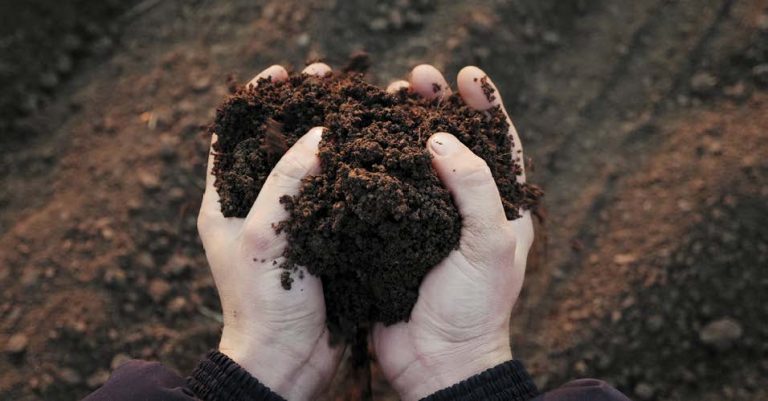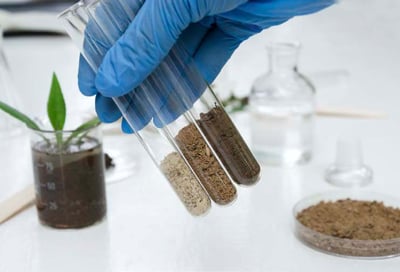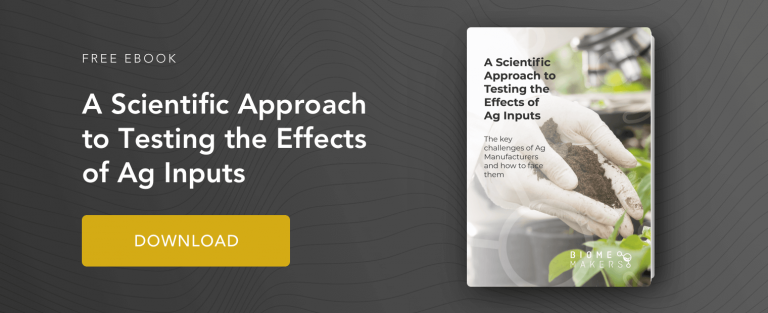Share this
A scientific approach to testing the effects of ag inputs
by Juan Vicente Beneitez Lajas on 01/Apr/22

Soil hosts a plethora of microbial organisms, representing one of the most unknown and complex ecosystems on Earth. Soil microorganisms (including bacteria, fungi, and protozoa) can interact with plants in both positive and negative ways.
Plants provide carbon to microbes through root exudates and organic matter residues. Microbes, on the other hand, provide nutrients to plants through mineralization and solubilization of different elements and can promote plant growth. For example, one specific microbe may produce different types of phytohormones that increase the caliber of a crop.
However, there may be some "bad" microbes. Some microorganisms could have a negative impact on plants by competing for nutrients, causing diseases, increasing stress, and reducing the strength of the plant. Naturally, the soil microbiome is of great interest in agricultural soils. However, with billions of microbes that metabolize millions of different molecules, it can be challenging to analyze.
Nonetheless, researchers have developed solutions that make can determine the microbial makeup of the wider, complex soil ecosystem. These analyses can provide clear insights into what the microbes are doing in the soil. This helps us better understand how the soil microbiome impacts plant development, soil health, and crop yields.

For instance, soil microbiome characterization allows us to identify the specific activity of nutritional pathways, such as nitrogen mineralization and phosphorus solubilization, among others, which provide plants with available nutrient forms.
A biological soil microbiome analysis is an exciting addition to farming because it assesses the effects of soil microbial quality on crop yield, quality, and resilience. Detailed soil biology analysis enables assessing and proving the effects of many types of ag inputs that may enhance crop quantity, quality, and nutrition. Furthermore, this detailed analysis allows ag input manufacturers to benchmark the performance of their products.

Products can be verified by an independent third party, ensuring the benchmarking is supported by neutral microbiome claims.
We will look in more detail at how soil microbiome analysis can effectively measure the effects of Ag inputs. First, we will examine the challenges faced by Ag manufacturers, including the difficulty in getting accurate data and keeping strategies scalable. Then, we will discuss how soil functional analysis can provide accurate data about the efficacy of products. Soil microbiome analysis is creating exciting opportunities for every stage in the supply chain, so read on to learn more.
Share this
- June 2025 (2)
- September 2024 (1)
- August 2024 (1)
- July 2024 (1)
- June 2024 (2)
- May 2024 (2)
- April 2024 (2)
- March 2024 (1)
- February 2024 (1)
- January 2024 (1)
- November 2023 (1)
- October 2023 (1)
- September 2023 (1)
- August 2023 (2)
- July 2023 (2)
- May 2023 (2)
- April 2023 (3)
- March 2023 (3)
- February 2023 (2)
- January 2023 (1)
- November 2022 (1)
- October 2022 (2)
- September 2022 (1)
- August 2022 (3)
- July 2022 (3)
- June 2022 (1)
- May 2022 (5)
- April 2022 (7)
- August 2021 (1)
- July 2021 (1)
- May 2021 (1)
- April 2021 (4)
- November 2020 (3)
- October 2020 (4)
- September 2020 (1)
- August 2020 (3)
- July 2020 (1)
- June 2020 (1)
- May 2020 (2)
